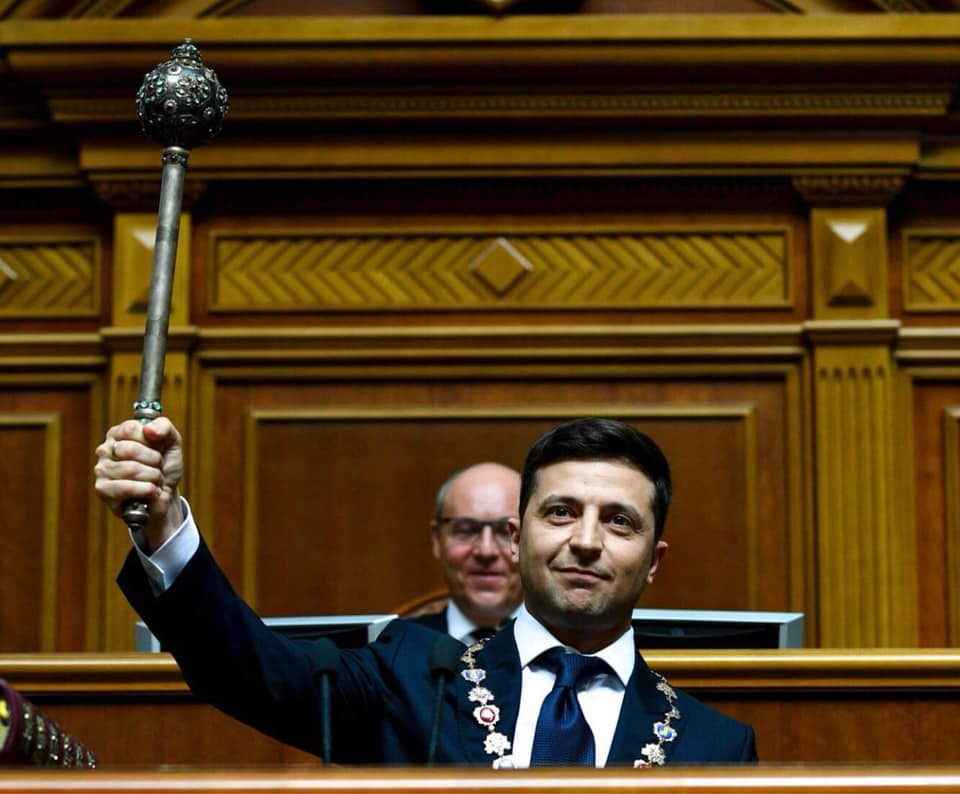
Володимир Зеленський/Facebook)
The U.N. Security Council rejected a Russian request Monday to hold a meeting on a new language law in Ukraine, with opponents calling it an attempt by Moscow to interfere in the inauguration of Ukraine’s new president, Volodymyr Zelenskiy.
Russia needed nine “yes” votes in the 15-member council to hold the meeting but it got support from only four other countries — China, South Africa, Equatorial Guinea and the Dominican Republic. Six countries voted against a meeting — France, Germany, U.S., U.K., Belgium and Poland — and with four other nations abstaining, it was cancelled.
But council members were able to speak before and after the vote. There were heated exchanges and interruptions, reflecting divisions over Russia’s annexation of Ukraine’s Crimean Peninsula in early 2014 following the ouster of Ukraine’s Russia-friendly president by big street protests as well as and Russia’s continuing support for separatist rebels in eastern Ukraine that has led to conflict with government forces.
France, Germany and Belgium said they asked to postpone the Security Council meeting for several days but Russia refused.
French Ambassador Francois Delattre and German Ambassador Christoph Heusgen said in a joint statement after the vote that Russia’s objective in choosing Zelenskiy’s inauguration day was “to pursue its notorious policy of intimidation against Ukraine again.”
The acting U.S. ambassador, Jonathan Cohen, called Moscow’s request for Monday’s meeting “a clear attempt by Russia to distract from the peaceful, democratic transfer of power happening today in Ukraine.”
Russian Ambassador Vassily Nebenzia called the council’s refusal to hold the meeting “a blatant demonstration of double standards” by members who approved other meetings. He accused them of “censorship.”
Nebenzia was sharply critical of the new language law, which requires the use of Ukrainian in the government and media and relegates Russian, which is also widely spoken in the country, to personal communications.
He said the law is aimed to push the Russian language out and “sow discord,” predicting it will lead “to excessive polarization of the people of Ukraine.” He also called the language law a violation of the 2015 Minsk agreements aimed at bringing peace to Ukraine’s volatile east.
Zelenskiy said after his inauguration that the main goal for his presidency is to bring peace to eastern Ukraine, where government troops have been fighting Russia-backed separatists for five years in a conflict that caused at least 13,000 deaths and displaced 1.5 million people.
France’s Delattre and Germany’s Heusgen called for “full, immediate and unconditional implementation of the Minsk agreements.”
“The inauguration of the new Ukrainian president, who expressed his determination to restore peace again today, should be an opportunity to give a new impetus to those agreements,” they said.
Ukraine’s ambassador, Volodymyr Yelchenko, said Russia’s attempt “to send a very powerful message to the new leader from the Security Council” ended up instead being a message for Russia.
“And this is not the best way to start contacts between Russia and Ukraine if they really want to,” he told reporters.